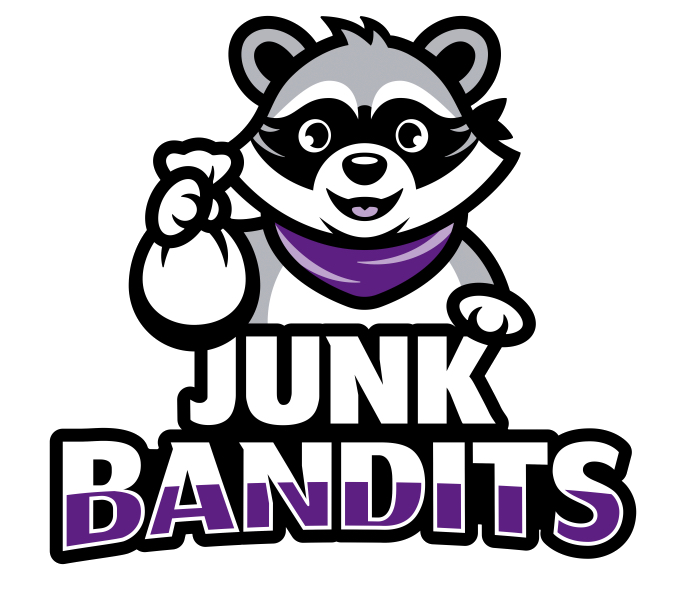How to Safely Dispose of Hazardous Waste: A Guide for Businesses

Every business, from small local shops to large industrial corporations, generates waste as part of their operations. However, not all waste is created equal. Hazardous waste, which includes materials that are potentially harmful to health, the environment, or property, must be managed with care. Improper disposal can lead to serious consequences, including legal penalties and environmental damage. In this guide, we will explore how businesses can safely dispose of hazardous waste, keeping compliance in mind and ensuring environmental responsibility.
What is Hazardous Waste?
Hazardous waste is any discarded material that poses a significant risk to health, safety, or the environment. It can be found in a variety of forms: solids, liquids, gases, or sludges. Common examples of hazardous waste include:
- Chemical solvents: Used in cleaning or manufacturing processes, these can be flammable or toxic.
- Electronic waste (e-waste): Items such as old computers, phones, and batteries contain harmful substances like mercury and lead.
- Paint and paint thinners: Often classified as hazardous due to their flammability and toxic components.
- Pesticides and herbicides: Contain toxic chemicals that can harm plants, animals, and human health.
Businesses need to properly identify the hazardous waste they generate to comply with local and federal regulations, such as those set by the Environmental Protection Agency (EPA). The first step in safe disposal is knowing what you're dealing with.
Why is Proper Hazardous Waste Disposal Important?
Disposing of hazardous waste improperly can have serious repercussions. Beyond the risk of heavy fines and legal action, improper disposal can damage the environment and pose health risks to employees, customers, and the general public. Chemicals can leach into groundwater, harm wildlife, or even cause fires. To prevent such issues, businesses must develop a clear plan for the proper disposal of all hazardous materials they generate.
Steps to Safely Dispose of Hazardous Waste
1. Identify and Classify Your Waste
Understanding what type of hazardous waste your business generates is the critical first step. Waste is generally classified into categories, such as corrosive, ignitable, toxic, or reactive. Use safety data sheets (SDS) to identify the characteristics of your waste materials.
The EPA has a comprehensive classification system that helps businesses categorize their waste into one of four categories: listed, characteristic, universal, or mixed. Identifying the category will allow you to determine the safest disposal method.
2. Develop a Waste Management Plan
Having a proper waste management plan is essential for any business dealing with hazardous waste. This plan should outline how waste is to be handled, stored, and disposed of. It’s also crucial to train employees on these procedures, ensuring everyone is aware of the dangers associated with hazardous materials and knows how to safely manage them.
The plan should include:
- Safe storage protocols (e.g., using sealed, labeled containers)
- Proper handling techniques to minimize spills and exposure
- Emergency procedures in case of accidental leaks or spills
- Transportation and disposal methods according to federal, state, and local regulations
3. Proper Storage of Hazardous Waste
Storing hazardous waste properly is a critical component of safe disposal. Use containers that are appropriate for the type of waste you're dealing with—most regulations require that these containers be clearly labeled and leak-proof. The storage area should be secured, away from public access, and equipped with containment measures to handle potential leaks or spills.
It’s also essential to avoid mixing different types of hazardous waste, as certain combinations can react dangerously.
4. Transportation Regulations
Transporting hazardous waste requires strict adherence to regulations. Businesses must comply with the Department of Transportation (DOT) regulations, which include using proper containers, labeling, and transportation permits. Always ensure that the waste is transported by certified professionals who are trained to handle hazardous materials.
You may need to obtain a manifest—a document that tracks hazardous waste from its point of origin to its final disposal destination. This ensures that all waste is accounted for and handled properly.
5. Use Licensed Hazardous Waste Disposal Services
One of the safest and most efficient ways to dispose of hazardous waste is by working with a licensed disposal service, such as Junk Bandits. These professionals are equipped to safely collect, transport, and dispose of hazardous materials in compliance with regulations.
A professional service will take care of the details, including safe storage, handling, and compliance with all environmental laws. This not only reduces the risk of improper disposal but also helps your business avoid potential legal issues.
6. Recycling and Reusing When Possible
In some cases, hazardous materials can be recycled or reused, which can be both environmentally friendly and cost-effective. Many chemicals, metals, and electronic components can be reprocessed to minimize waste. For instance, some types of e-waste can be dismantled and the parts reused in other products. Paint can often be recycled or donated if it is still usable.
Check with local recycling programs to find out which materials can be safely recycled and what steps you need to take to prepare them for recycling.
7. Stay Informed About Regulations
Hazardous waste disposal regulations are constantly evolving, with both federal and state governments updating guidelines to improve safety and environmental protection. It is essential to stay up to date on these changes to remain compliant. Consider subscribing to industry newsletters or consulting with an environmental law expert to ensure you’re meeting all necessary regulations.
8. Train Your Staff Regularly
Regular training for staff members on the proper handling, storage, and disposal of hazardous waste is crucial. Employees should know how to identify hazardous materials, follow safety protocols, and respond to emergency situations like spills or leaks. Proper training not only ensures compliance but also promotes a culture of safety within your business.
Benefits of Proper Hazardous Waste Disposal
- Legal Compliance: Proper disposal helps businesses comply with local, state, and federal regulations, avoiding costly fines and legal action.
- Environmental Protection: By disposing of hazardous waste responsibly, businesses protect natural resources, such as soil and water, and prevent pollution.
- Safety: Correct disposal prevents potential health risks to employees, customers, and the community.
- Reputation: Businesses that demonstrate environmental responsibility build trust with their customers and enhance their public image.
Take Action for Safe Hazardous Waste Disposal
Managing hazardous waste responsibly is not just a legal requirement—it's a commitment to safety and environmental stewardship. By following the proper steps to identify, store, transport, and dispose of hazardous materials, your business can operate safely and sustainably. Don’t let hazardous waste become a liability; ensure that your business is proactive about compliance and safety.
If you're looking for a trusted partner to help with hazardous waste disposal, consider working with a professional service like Junk Bandits. With the expertise to handle hazardous materials safely, they can ensure your business stays compliant and environmentally responsible.
Ready to make your hazardous waste disposal hassle-free? Visit today Junk Bandits to learn more about their services and get a quote for your business waste management needs. Act now to protect your business, your employees, and the environment!

